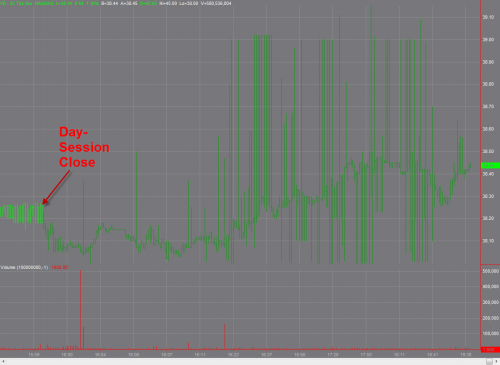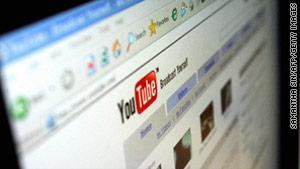Federal Agents Urged to ‘Friend’ People on Social Networks, Memo Reveals

Josh Mayeux, network defender, works at the Air Force Space Command Network Operations & Security Center at Peterson Air Force Base in Colorado Springs, Colorado (REUTERS)
(Fox News) — A privacy watchdog has uncovered a government memo that encourages federal agents to befriend people on a variety of social networks, to take advantage of their readiness to share — and to spy on them. In response to a Freedom of Information request, the government released a handful of documents, including a May 2008 memo detailing how social-networking sites are exploited by the Office of Fraud Detection and National Security (FDNS).
As of Thursday morning, Facebook, Twitter, MySpace, and Digg had not commented on the report, which details the official government program to spy via social networking. Other websites the government is spying on include Twitter, MySpace, Craigslist and Wikipedia, according to the Electronic Frontier Foundation (EFF), which filed the FOIA request.
“Narcissistic tendencies in many people fuel a need to have a large group of ‘friends’ link to their pages, and many of these people accept cyber-friends that they don’t even know,” stated one of the documents obtained by the EFF. “This provides an excellent vantage point for FDNS to observe the daily life of beneficiaries and petitioners who are suspected of fraudulent activities,” it said.
According to the EFF, this memo — which specifically details how the government evaluates potential citizen requests — suggests there’s nothing to prevent an exaggerated, harmless or even out-of-date offhand comment in a status update from quickly becoming the subject of a full investigation.
With this revelation, the government joins a growing list of groups using social-networking sites for purposes other than social networking. As these sites have gained popularity, scammers and spammers have become rampant, and hackers are increasingly turning to networks such as Facebook to spread viruses and Trojan Horses.
The EFF also uncovered efforts by the Department of Homeland Security to monitor social media during the inauguration of President Obama. According to the documents, the DHS collected a massive amount of data on individuals and organizations explicitly tied to the event.
The DHS notably attempted to ensure that its use of social networks was appropriate while gathering data online. The newly released documents cite the Fair Information Practices Principles, a 2008 policy memo by the Department of Homeland Security’s chief privacy officer that set guidelines for ensuring online privacy during the collection of information.
Read moreFederal Agents Use Social Networks To Spy On The People






